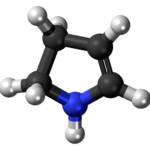Soil amendments are substances added to soil to improve its physical, chemical, and biological properties.
They can help to correct pH imbalances, reduce soil compaction, and add nutrients.
By improving soil fertility, structure, water retention, and drainage, soil amendments can help to create a healthy and productive growing environment for plants.
In this article, we will explore the different types of soil amendments, how they work, and their benefits.
Types of Soil Amendments
Soil amendments can be organic or inorganic materials.
Organic amendments are derived from plant or animal sources, while inorganic amendments are minerals or synthetic substances.
Let’s take a closer look at some of the most commonly used types of soil amendments.
Organic Soil Amendments
Compost
Compost is probably the most well-known organic soil amendment.
It is made by decomposing organic matter, such as leaves, grass clippings, food scraps, and animal manure.
Compost is a rich source of organic matter and nutrients, and it improves soil structure, water-holding capacity, and nutrient content.
When added to soil, compost can help to improve soil fertility by providing a slow-release source of nutrients, such as nitrogen, phosphorus, and potassium.
It can also help to promote the growth of beneficial microorganisms in the soil, which can break down organic matter and release nutrients that plants can use.
Manure
Manure is another organic soil amendment that is high in nutrients and organic matter.
It is made from animal waste, such as cow, horse, or chicken manure.
When added to soil, manure can help to improve soil fertility by providing a source of nitrogen, phosphorus, and other essential nutrients.
However, manure should be used with caution, as it can be high in salts and pathogens that can harm plants if applied in excessive amounts.
It is best to let manure age for several months before using it as a soil amendment, and to avoid using fresh manure on vegetables and other crops that will be eaten raw.
Peat Moss
Peat moss is a type of decomposed plant material that is used to improve soil structure, water retention, and drainage.
It is often used as a component of potting mixes and garden soils.
Peat moss is highly absorbent, and it can hold up to 20 times its weight in water.
When added to soil, peat moss can help to improve soil texture by loosening heavy soils and improving water infiltration.
It can also help to reduce soil compaction and improve soil aeration.
Inorganic Soil Amendments
Lime
Lime is an inorganic soil amendment that is used to increase soil pH.
It is made from ground limestone, which is high in calcium and magnesium.
Lime can be used to reduce soil acidity, which can be beneficial for plants that prefer a more alkaline soil.
When added to soil, lime reacts with the soil particles to raise the pH and make the soil more alkaline. This can improve the availability of nutrients, such as phosphorus, calcium, and magnesium, which are often less available in acidic soils.
Sulfur
Sulfur is another inorganic soil amendment that is used to decrease soil pH.
It is often used in soils that are too alkaline for plants to grow well.
Sulfur reacts with soil particles to produce sulfuric acid, which lowers the soil pH.
When added to soil, sulfur can help to make nutrients more available to plants, such as iron, manganese, and zinc, which are often less available in alkaline soils.
Gypsum
Gypsum is a mineral soil amendment that is used to improve soil structure and water penetration.
It is made from calcium sulfate, which is a naturally occurring mineral.
Gypsum can be used to loosen heavy clay soils, improve water infiltration, and reduce erosion.
When added to soil, gypsum reacts with the soil particles to create a more porous soil structure, which allows for better water infiltration and drainage.
It can also help to reduce soil compaction and increase the availability of nutrients, such as calcium and sulfur.
Perlite
Perlite is a volcanic glass that is used to improve soil aeration and drainage.
It is made by heating up crushed volcanic rock, which causes it to expand and become porous.
Perlite is often used as a component of potting mixes and garden soils.
When added to soil, perlite can help to improve soil texture by increasing the amount of air space in the soil.
This can improve soil aeration, which is important for healthy root growth. Perlite can also help to improve water drainage, which can prevent waterlogging and root rot.
Benefits of Soil Amendments
Soil amendments can provide a number of benefits to plants and soil.
Let’s take a look at some of the main benefits of using soil amendments.
Improved Soil Fertility
One of the main benefits of soil amendments is that they can help to improve soil fertility.
Organic soil amendments, such as compost and manure, can provide a slow-release source of nutrients that plants can use over time.
Inorganic soil amendments, such as lime and sulfur, can help to make nutrients more available to plants by adjusting the soil pH.
Improved Soil Structure
Soil amendments can also help to improve soil structure by loosening compacted soil, increasing porosity, and improving water infiltration and drainage.
This can create a better growing environment for plants by allowing for healthy root growth and nutrient uptake.
Reduced Soil Erosion
Soil amendments can also help to reduce soil erosion by improving soil structure and increasing water infiltration.
This can help to prevent soil from washing away during heavy rainfall, which can protect plants and prevent nutrient loss.
Improved Water Retention
Soil amendments, such as peat moss and vermiculite, can help to improve water retention in soil by increasing the soil’s ability to hold onto water.
This can be especially beneficial in dry or sandy soils, where water can quickly drain away.
Increased Microbial Activity
Soil amendments can also help to increase microbial activity in soil. Microbes, such as bacteria and fungi, are important for breaking down organic matter and releasing nutrients that plants can use.
By promoting microbial activity, soil amendments can help to improve soil fertility and plant health.
Conclusion
Soil amendments are a valuable tool for improving soil health and creating a productive growing environment for plants.
Whether you are a farmer, gardener, or homeowner, soil amendments can help you to achieve healthy and vibrant plants.
By choosing the right soil amendments for your soil type and plant needs, you can create a thriving ecosystem that supports healthy plant growth and improves soil health over time.
You might also like these articles:
- What micronutrients are important to your plants
- Unleash the Magic of Mulch: Transform Your Garden Today!
- Unleash the Beauty: The Ultimate Guide to Cultivating a Lush and Vibrant Lawn
- Understanding EC Meter
- Transforming Trash into Treasure: The Ultimate Guide to Composting for Healthier Plants and Gardens
- Transform Your Soil into a Vibrant Garden Oasis with the Power of Soil Amendments
- Tips for Improving Soil Health in Gardening and Farming
- Tips for Growing an Avocado Tree: Climate Factors, Soil Needs, Tree Varieties, and Planting Methods
- Tips for extending the growing season and maximizing yield
- The Role of Nitrogen in Plant Growth and Development
- The Importance of Soil Testing: Types of Tests and Interpretation of Results
- Sweet Success: A Guide to Growing Juicy Strawberries in Your Garden












